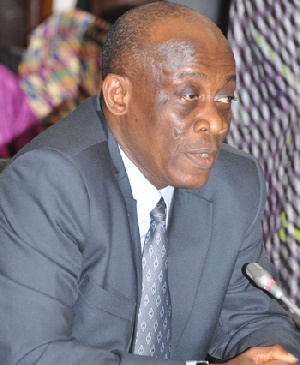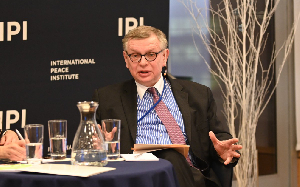Revenues and grants received by Ghana's government in the first half of this year were 5.4 percent above target, Finance Minister Seth Terkper said on Thursday.
The cash fiscal deficit over the same period stood at 2.3 percent of gross domestic product (GDP) compared with a target of 3.4 percent, he said.
Ghana is following an International Monetary Fund (IMF) aid programme to restore fiscal stability and kick-start growth.
"Developments during the first half of 2015, particularly with regards to fiscal performance, indicate that policies and reform measures are taking hold and yielding results," Terkper told reporters in Accra.
He said, however, that the government would need to make adjustments, including further tightening of spending in response to the decline in oil prices.
"With the continuous decline in crude oil prices, the original and revised estimates of petroleum benchmark revenue for 2015 may not be achieved and this can have negative implications for the budget execution."
The West African country, which exports cocoa and gold, launched commercial oil production from its offshore Jubilee field in late 2010. It is also developing two additional fields expected to come on stream in the next two years.
Under the three-year IMF deal signed in April, the government is required to cut public sector wages, which currently account for 50-55 percent of tax revenue, and do away with subsidies.
Business News of Thursday, 3 September 2015
Source: Reuters













